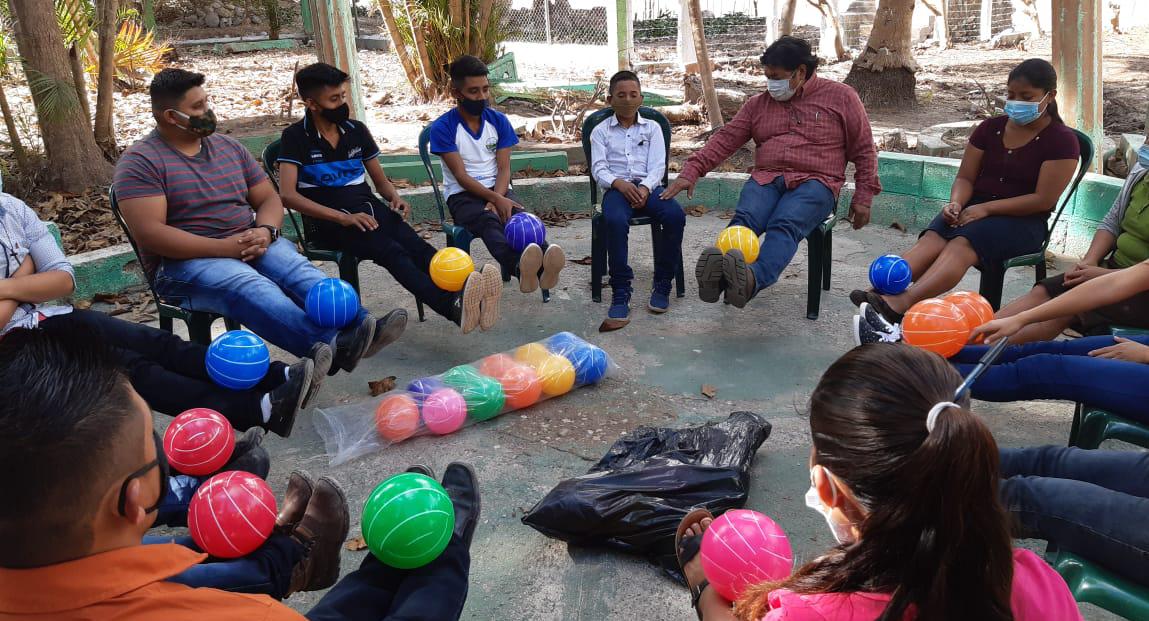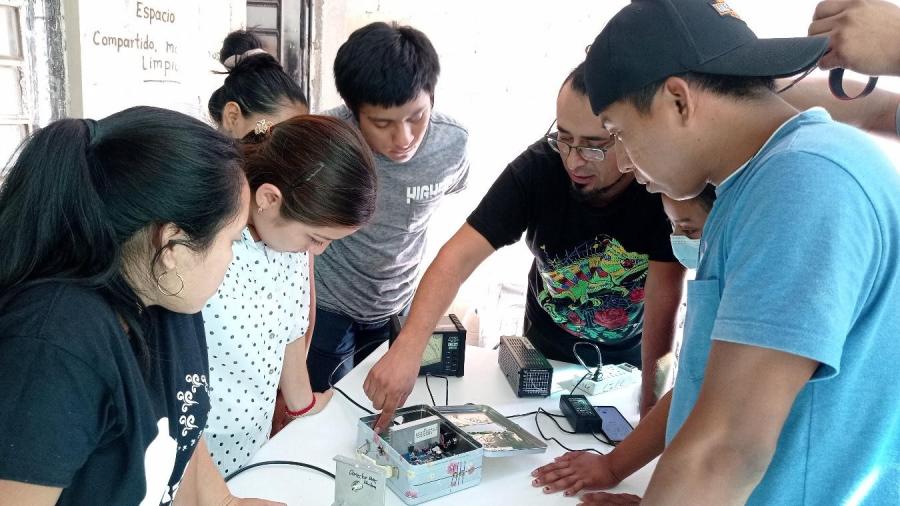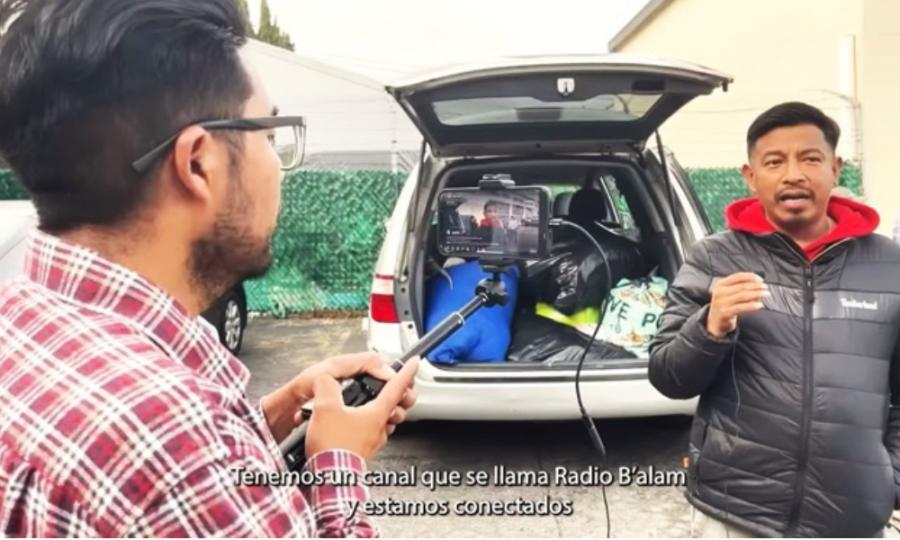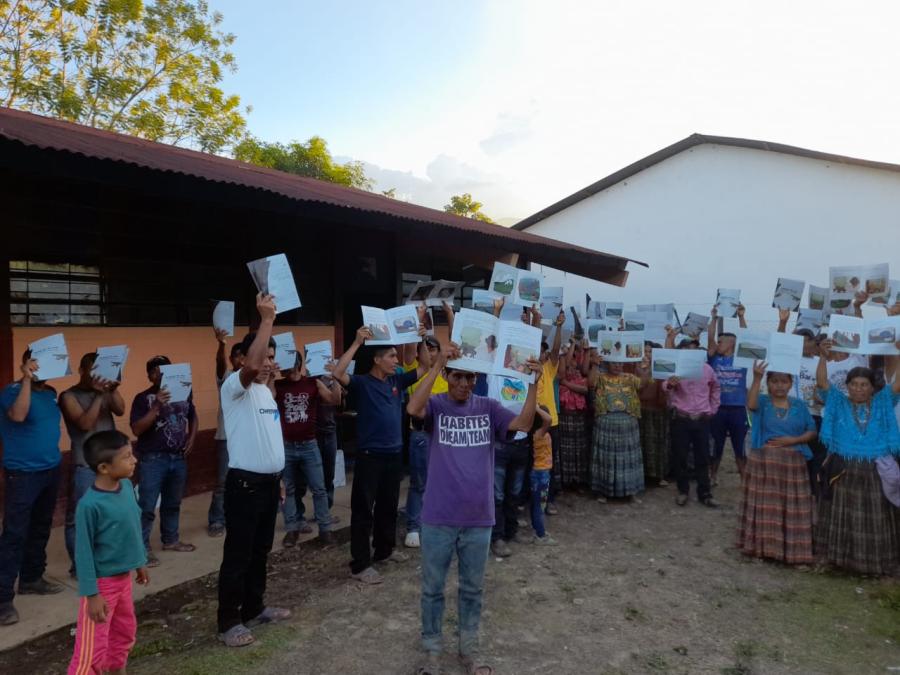
By Cesar Gomez (CS STAFF)
“What we are learning will help us highlight what is happening in the community,” said María López, a participant of a communication workshop, organized through Cultural Survival's Community Media Program, that took place at the end of December 2020. The workshop was designed to support young water protectors from Asociación Campesina Indígena Maya Ch'orti Nuevo Día, an Indigenous organization in Jocotan, Chiquimula, Guatemala.
Taking into account all the preventative measures needed during the COVID-19 pandemic to host such a workshop, for two days, fourteen young people from the communities of Lelá Obraje, Olopa, Lelá Chancó, Salitrón, Guareroche, Ticipe, learned how to improve their skills in speech techniques, radio script development, and the process of audio recording. The main objective for this workshop was for the delegates to learn how to produce their own radio materials in the Ch'orti language and in Spanish.
The methodology used was participatory learning and sharing, as the youth learned by doing. First, the process of how we communicate was examined and we then discussed how Indigenous Peoples have been marginalized to only be consumers of information. We are changing this perception, as we all have the ability to develop informative messages of interest to communities, including becoming creators and media makers!
The youth participants practiced different speech techniques through exercises, where they learned the importance of diaphragmatic breathing, the projection of the voice, as well as vocalization, pronunciation and diction, which are all necessary to achieve effective communication in radio. The participants learned what makes an effective radio script, and in addition to the recording process, they listened to some audio examples that have been broadcasted on community radio stations.
López adds, “We want to make messages to publicize the devastating effects of Hurricanes Eta and Iota. We lost our corn, beans, and coffee, as well as a suspension bridge in my community.” Jeremías Hernández from Nuevo Día pointed out, “We hope that young people will assume the role of community communicators and that they will use digital platforms that we have in the organization to disseminate and raise awareness among the population about what is happening to defend our territory and the rights of the Ch'orti people.”
The participants listed and discussed the extractive projects that are affecting the Ch'orti people that have violated their right to Free, Prior, and Informed Consent. Minera Cantera los Manantiales operates without the consent of the communities, causing pollution to the environment and for that reason the community has been advocating at the State level to permanently close it. The communities also have opposed the construction of hydroelectric plants on the Jupilingo River because it threatens their way of life. They have also rejected the installation of high voltage electrical towers by the Trecsa Company and through organizing and information sharing they have been able to stop some of these projects. Indigenous community radio stations and the capacity and skill building they provide to Indigenous communicators and media makers, serve as powerful tools for Indigenous Peoples to exercise and assert their rights.
“For Nuevo Día and the communities it serves, what was a dream that is now becoming a reality, thanks to the support of Cultural Survival. The training process of youth media makers will provide communities in the short term with communicators who have the responsibility of keeping their communities informed. Doubling the number of youth media makers is the next task, as well as establishing a community radio station,” members of the communities shared.
Cultural Survival’s Keepers of the Earth Fund is supporting Ch'orti communities to strengthen their technical capacities, as well as supporting intergenerational dialogues that help strengthen and pass on ancestral knowledge to the next generations.



